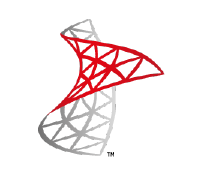


Are you looking to build unique software for your business needs? SPEC India is a trusted custom software development company in india. We offer end-to-end strategic, scalable software solutions for funded startups, SaaS businesses, and enterprises. We have delivered over 300+ software solutions. As one of the top-tier bespoke software development companies, SPEC has a proven track record of delivering vast solutions that drive efficiency and productivity for our clients.
Ready to elevate your business with customized software? Contact us today for a consultation and take the first step towards digital transformation. SPEC India’s team of custom software developers excels at creating modern software solutions for diverse industries, demonstrating expertise across a wide range of technologies, frameworks, and programming languages.
As one of the leading custom software development companies, SPEC India leverages our decades-long experience in crafting bespoke solutions that are needed in today’s disruptive environment, aligning them with the specific business objectives of leading organizations, startups, and SMBs. This alignment ensures our custom software development services not only solve challenges of any complexity and scale but also optimize and automate business processes to support the achievement of these objectives. We have helped leading organizations, startups, and SMBs solve challenges of any complexity and scale through our state-of-the-art customized solutions.

Our wide range of full-stack web development covers building custom web applications that meet your specific business needs. We use advanced frameworks and popular programming languages to create feature-rich, user-friendly, and custom web applications to meet the evolving user as well as market demands.

Whether you want native, cross-platform mobile apps, PWA, or Hybrid mobile apps, our experienced team got everything covered. SPEC’s mobile app development team builds compelling, cross-platform, and robust mobile apps from scratch by considering customized needs and key objectives and knowing your target audience.

Reap the benefits of cloud computing by hosting a development environment in the cloud. With our hands-on expertise in cloud deployment models and environments, we help organizations gain advantages such as cost control, easy maintenance, flexibility, and scalability by deploying secure websites and apps on the cloud.

Our low-risk approach to legacy app modernization helps organizations evolve with minimal disruption. Enhance the functionality and redesign outdated legacy systems with the latest technologies and models such as cloud, analytics, and mobility. Leverage new IT to make your existing systems more agile, resilient, and efficient.

Our product engineering services include end-to-end product development, from initial analysis to design, development, testing, and scaling of a feature-rich, customized product. We are trusted by global enterprises for customized products that paved the path forward for agility, innovation, and a continuous digital transformation journey. At SPEC INDIA, we incorporate agile software development practices in our product engineering services, ensuring continuous improvement and adaptability in delivering modern, cloud-native applications and solutions with precision and agility.

Our QA team uses various technologies, methods, and the latest practices to deliver high-quality software that meets the required standards. Our product testing services include automated as well as manual testing practices to increase the efficiency of the system and create error-free, flawless software products.
SPEC India’s business intelligence services offer a wide range of data management, integration, warehousing, and analytics services to help businesses establish a data-driven culture. We make your data more valuable and usable by integrating powerful analytics that create the foundation for growth. Our broad expertise in data-related services empowers organizations to gain a 360-degree business picture.

API – Application Programming Interface offers ease of integration, faster data transformation, improved services, and an automated environment. Our skilled developers offer custom API development and third-party API integration services to extend the functionality of your system and integrate components, tools, and programs. Our services help businesses build, execute, and scale custom APIs to add more functionalities.

We listen to your ideas and understand your requirements to build custom software that meets your unique needs on time and within budget.
Being one of the top custom software development companies, we aim to craft superior digital experiences that improve your engagement ratio, streamline business processes and accomplish a set of business objectives.
React
Angular
Vue.js
HTML
CSS
.NET
PHP
Java

Python
Nodejs
iOS
Android
PWA
Hybrid
Cross-Platform

MySQL

SQL Server
Oracle

PostgreSQL
MongoDB
Selenium
Appium
JMeter
LoadRunner
UFT
Every custom software development project is approached with a unique strategy, ensuring that solutions are tailored to our client’s specific needs and leveraging the latest and classic technologies to optimize the development process and drive project success.
We gather all the required information and analyze your business requirements. We begin with validating your idea or suggesting a feasible solution to meet your needs. In this phase, we find optimal solutions by conducting thorough research, estimation, risk analysis, and requirement elicitations.
Our goal is to create an intuitive, flawless, and great user experience that helps our clients win the UI/UX game. We chalk out UI/UX strategy, prepare software requirement specifications, create wireframes, and build software architecture, user interface design, and prototypes. Prototypes are tested and validated with feedback at an early stage.
In this phase of SDLC, our experienced software engineers transform your ideas into digital reality, employing a wide range of technologies, including backend and frontend programming languages, databases, cloud databases, architecture designs, and ensuring long-term software evolution. Our team builds customized solutions following best coding practices and standards. We follow an agile approach to creating continuous integration and delivery pipelines. We ensure modern software solutions that meet each client’s specific needs, incorporate advanced technologies, and provide continuous support and maintenance.
We rigorously test the developed system for inconsistencies, bugs, security, quality, performance, and errors. Our software testers use automated and manual tests to evaluate the functionalities and behavior of the software under different scenarios and check whether the software product matches expected requirements or not. We make sure that your software matches up to all your requirements and showcases the best performance on different devices and platforms.
After thorough testing and performance checks, we then deploy the developed system on preferred platforms or the cloud and integrate it with the necessary configurations. We make sure that you will have an environment and system that is easy to manage and scale with less downtime in a production environment. We continue monitoring the performance and fixing issues with comprehensive and continuous technical support.
Our SLA-driven support and maintenance cover fixing issues, performance consistency, and changing user requirements. Our agile approach and continuous improvement cycle help organizations add new features seamlessly to stay relevant and competitive. Our services include adaptive, corrective, preventive, and perfective software maintenance to keep up with the changing needs.
Take the first step towards success by partnering with us for customized software solutions that are easy to scale, easy to maintain, and tailored specifically to your needs.
Hire Software Developer
Discover the diverse range of industries we proudly support with our innovative software solutions to companies of different business verticals. Our expertise spans multiple sectors, ensuring tailored services for every unique need.
Custom software development refers to the process of designing and developing software for specific requirements, users, or enterprises. It meets unique business needs that off-the-shelf software can’t address. Capitalizing on custom software development helps you achieve your goals faster, saves your time and cost, and improves your operational efficiency.
As it is specifically designed to meet your organization’s requirements, it helps you automate core processes, streamline business operations, increase efficiency, and boost productivity. You can also gain a competitive advantage by accommodating new changes or scaling custom software as per the changing needs.
Usually, one of the primary reasons to have custom software is your unique business needs. If you have a specific set of business requirements that are frequently changing, you need custom software solutions that accommodate evolving needs and pave the path for continued growth and increased productivity.
We understand your business and create custom software from scratch. Our custom software development solutions include CRM, ERP, software modernization, custom enterprise software development, product engineering, and software integration services that are tailored-made to the needs.
Our team is well-versed with a number of technologies and tools and suggests the right tech stack based on certain parameters like budget, features, scope, time, resources, and existing infrastructure.
You can’t estimate the cost of custom software development straight away. There are many factors to be taken into account when deciding on the cost of developing customized software. These factors include features, budget, timeline, modules, design specifications, and integration with other systems/tools.
Yes, at SPEC India, we provide SLA-driven support and maintenance after deployment, including bug fixing, upgrades, and monitoring to identify performance issues.
Off-the-shelf software is built to serve a mass of users such as SaaS(Software as a service). It is ready-made and not customized. Custom software, on the other side, is built to meet the specific needs of the company or set of users.
We offer our custom software development services globally, with a strong presence in countries like the USA, Canada, UK, Europe, Netherlands, Singapore, Australia, Germany, UAE, India, and over 40+ other countries.
Yes, as a leading software development company in Dubai, we have extensive experience working with clients across the Middle East, delivering tailored software development services that meet local market demands and drive business growth.
SPEC House, Parth Complex, Near Swastik Cross Roads, Navarangpura, Ahmedabad 380009, INDIA.

This website uses cookies to ensure you get the best experience on our website. Read Spec India’s Privacy Policy